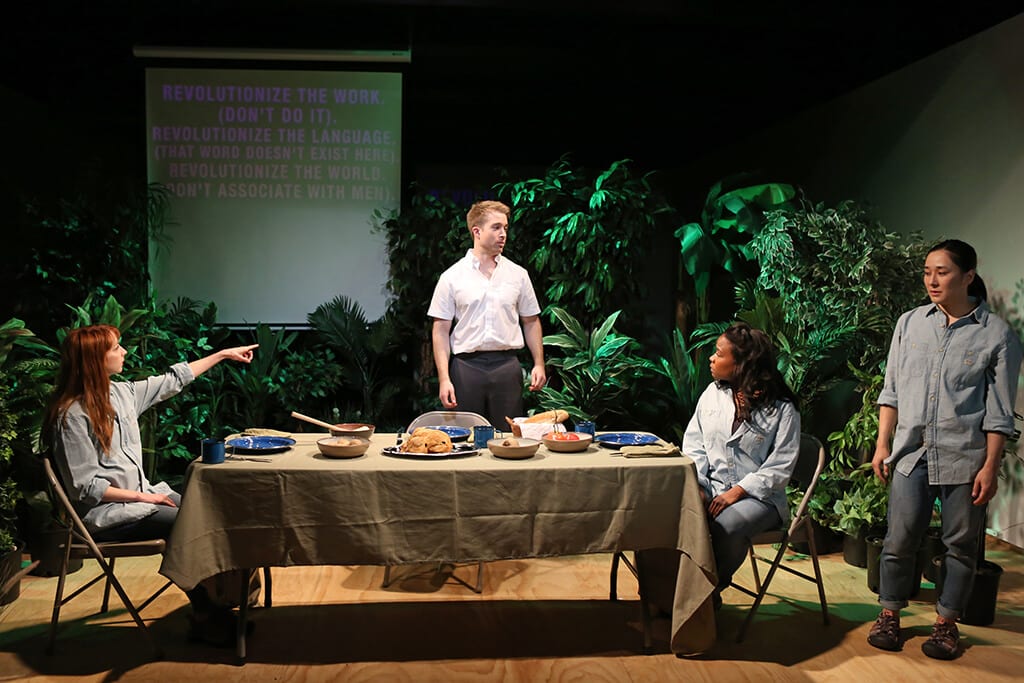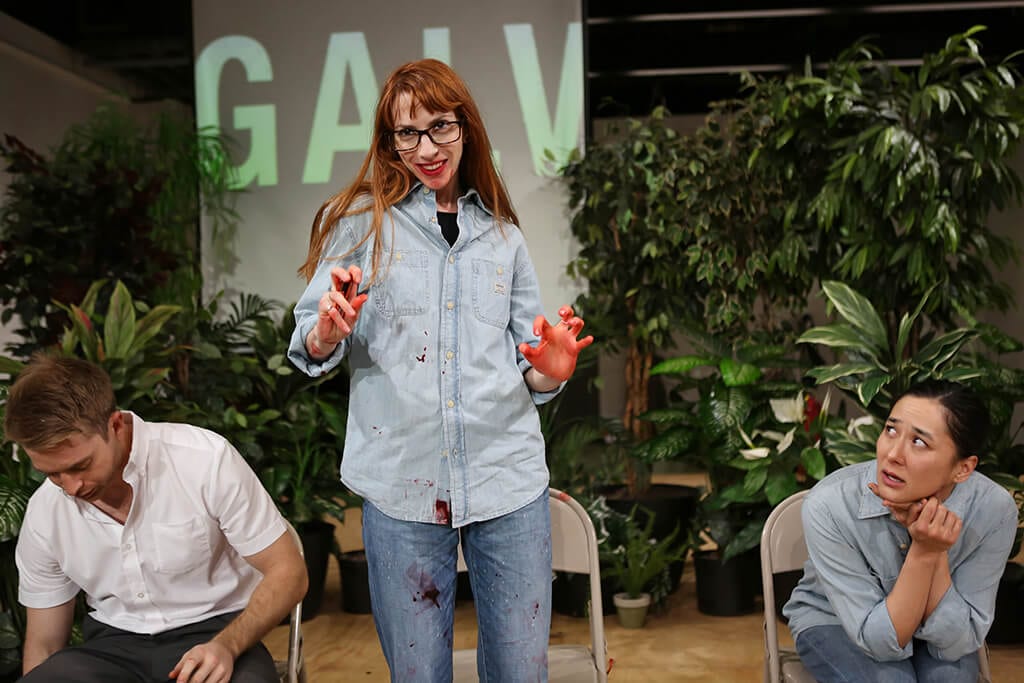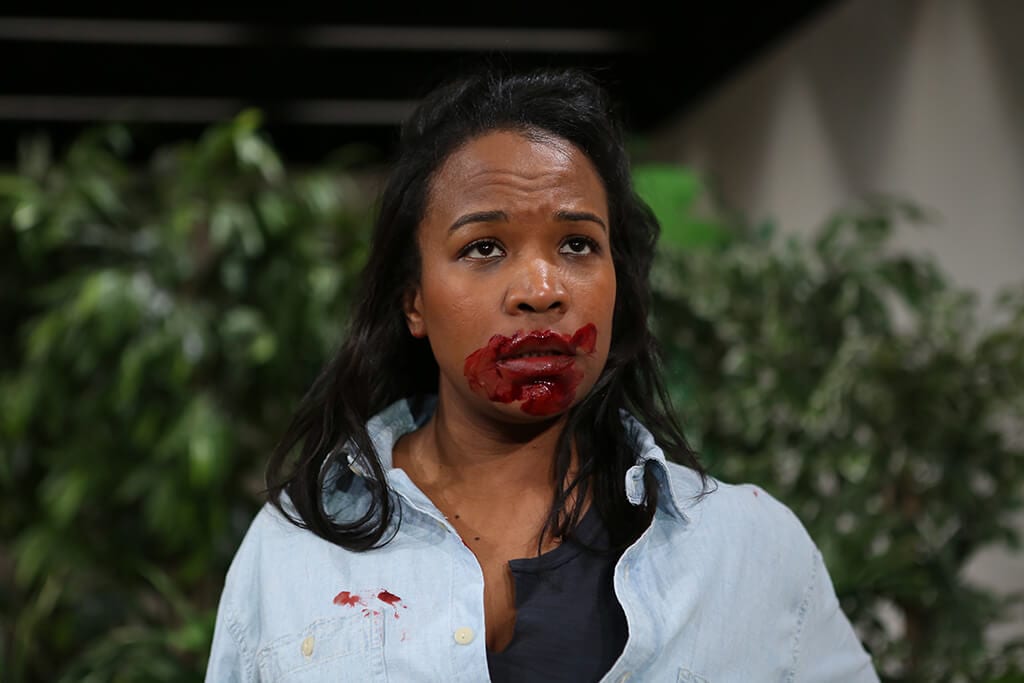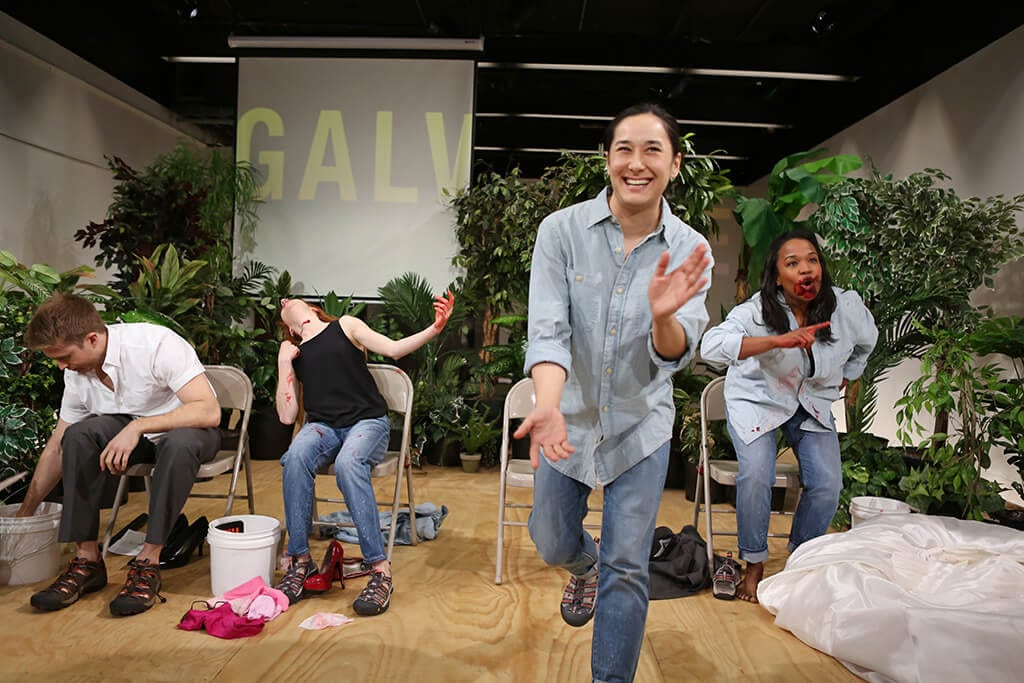We enter assaulted with deafening, thumping music, preparing us to have our ears and minds thumped with Alice Birch’s linguistic and very theatrical assault on everything that keeps a woman from being herself, or from simply wanting something else, not necessarily more, for herself alone.
Under director Lileana Blain-Cruz’s subtle yet outrageously fierce hand, four wonderful actors (Daniel Abeles, Molly Bernard, Eboni Booth and Jennifer Ikeda) carry out Birch’s command: “the play should not be well behaved.” Unruly it is, shifting with humor as well as anger through the grand themes of self-fulfillment, marriage, procreation, abuse and finally, pornography. Ultimately it is about how language has confined women to accept personal and political subjugation and the desolation at the loss of kindness.
The space at first is spare–stark white walls to the left and right, and a tangled mass of plants upstage. We progress through vignettes of verbal wrangling and misunderstanding, starting with two folding chairs and ending with a chaos of thrown chairs and demolished plants until finally we are engulfed with a haze of smoke that hides everything from view. The vignettes usually begin with humor and segue into the disturbing. The subject matter is displayed in bold lettering urging how to “revolutionize” language, the world, work, and the body. And revolt we must, even if we don’t completely understand why. In many cases the women are simply tired, tired of trying to maintain the status quo when it is anathema to their souls’ yearnings.
The first scene is a kind of quirky sexual interplay where She ends up verbally turning the seduction tables on Him, extracting the violent assumptions behind His romantic desires clothed in the alluring language of male obsession and seduction: “You look completely and utterly perfect – stay exactly as you are.” By the end, She has cleverly reduced the seduction to simply Her vagina and His penis.
As the play progresses, the interactions become darker and more brutal.
One particularly brilliant yet painful scene is the explanation of a woman who lays down in aisle 7 with her dress over her head, exposing herself. Molly Bernard, with quiet brilliance, delivers the explanation. She has completely resigned and destroyed her body so that she is now “unprotected, unconquerable, unclaimable.” It quite simply sears the heart. To attain freedom this woman must divest herself of her feminine sexuality and body.
A vignette with three generations of women demands a revolt by not reproducing and by not eating. Here Jennifer Ikeda brilliantly stuns us with: “I think I have been living on the principle of kindness and hope being enough and the thought being enough, but it turns out it isn’t; it turns out we stopped watching and checking and nurturing the thought to become the action.” But they can’t even communicate among themselves or admit to past abuse. The only solution now is to cut out their tongues. Without speech nothing can happen. But Birch rejects this. Revolt rages again as they demolish the set and themselves with quick-paced displays against pornographic images.
Ultimately it is a rite of passage from innocent acceptance of the suffocating social, political and historical notions that prevent a woman from being herself. In the play’s last cry “Who knew that life could be so awful?” it appears all the youthful, exuberant yearnings to change, to eradicate all men, are for nothing. Smoke and that thumping, deafening music again encompass us. It stops abruptly and it’s dark for a moment. But Birch intimates what has to be done. Revolt again, and if all else fails, revolt again and again.




